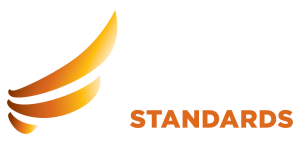
GENERAL COMPETENCY TRAINING
The General Competency Rule is contained within CASR 61.385 and is a cornerstone of safe operations under the new rule set. It applies to all Flight Crew License holders, from the recreational pilot right through to air transport pilots.
Essentially, prior to commencing a flight pilots must ask themselves “am I capable of conducting the operation safely?” – which is the equivalent of the medical “fitness to fly” question, however it relates to the technical and operational aspects of flying.
A pilot may only operate a particular class or type of aircraft if they are competent to do so. The Manual of Standards (Part 61 MOS) sets out specific flight standards, but the rule extends to all aspects of aircraft operation, including:
• aircraft systems such as fuel, powerplant, electrical, hydraulic and avionics (including navigational systems and cockpit displays)
• conducting all normal, abnormal and emergency procedures for the aircraft
• applying operational limits such as critical speeds for stalling and systems operation (landing gear / flaps)
• flight planning procedures – standard as well as considerations such as range, endurance or engine inoperative flight
• weight & balance
• aircraft performance – such as take-off and landing distance calculation.
The General Competency rule recognises that even when a pilot is appropriately authorised to operate an aircraft, similar aircraft within the class can have significant differences. Some differences are subtle, such as variations in the fuel or hydraulic systems between aircraft built in different years, other differences may be more obvious – such as the wide variation in avionics and cockpit presentations available. If a pilot is not familiar with any of these elements, it would be wise for them to seek additional training to learn correct handling techniques and processes – as well as how to get the best out of the equipment!
By way of example, from the CASA website:
Carol has experience on a single-engine, normally aspirated, class-rated aeroplane with analogue instrumentation, and wants to operate a Cirrus SR22T. Although Carol is authorised to fly the Cirrus (a single-engine, class-rated aeroplane), the general competency rule requires her to be competent operating the Cirrus electronic flight instrument system, turbocharging and operating specific equipment such as the oxygen system and ballistic parachute system. While Carol undertakes this training with her flight instructor, it does not result in a flight crew licence authorisation being granted or a transaction with CASA. This is because Carol has not changed her authorisations – she has simply adapted her competence to operate the SR22T safely.
 There are no requirements for logbook endorsements or license entries to cover general competency training, however it is a requirement to record all training activities. Flight Standards will issue a statement of attainment subsequent to any general competency training as a comprehensive record.
There are no requirements for logbook endorsements or license entries to cover general competency training, however it is a requirement to record all training activities. Flight Standards will issue a statement of attainment subsequent to any general competency training as a comprehensive record.
Ultimately, it is the responsibility of the pilot in command to ensure general competency, Flight Standards can provide the training to ensure that this is achieved and maintained. Specifically, general competency can be facilitated for the following:
• various aircraft types (as required for client needs)
• avionics – Aspen PFD1000, Garmin (430/530, GTN 650/750 systems), digital engine management (JPI systems)
• instrument flight skills refresher training
• introduction to turbocharger operations.
